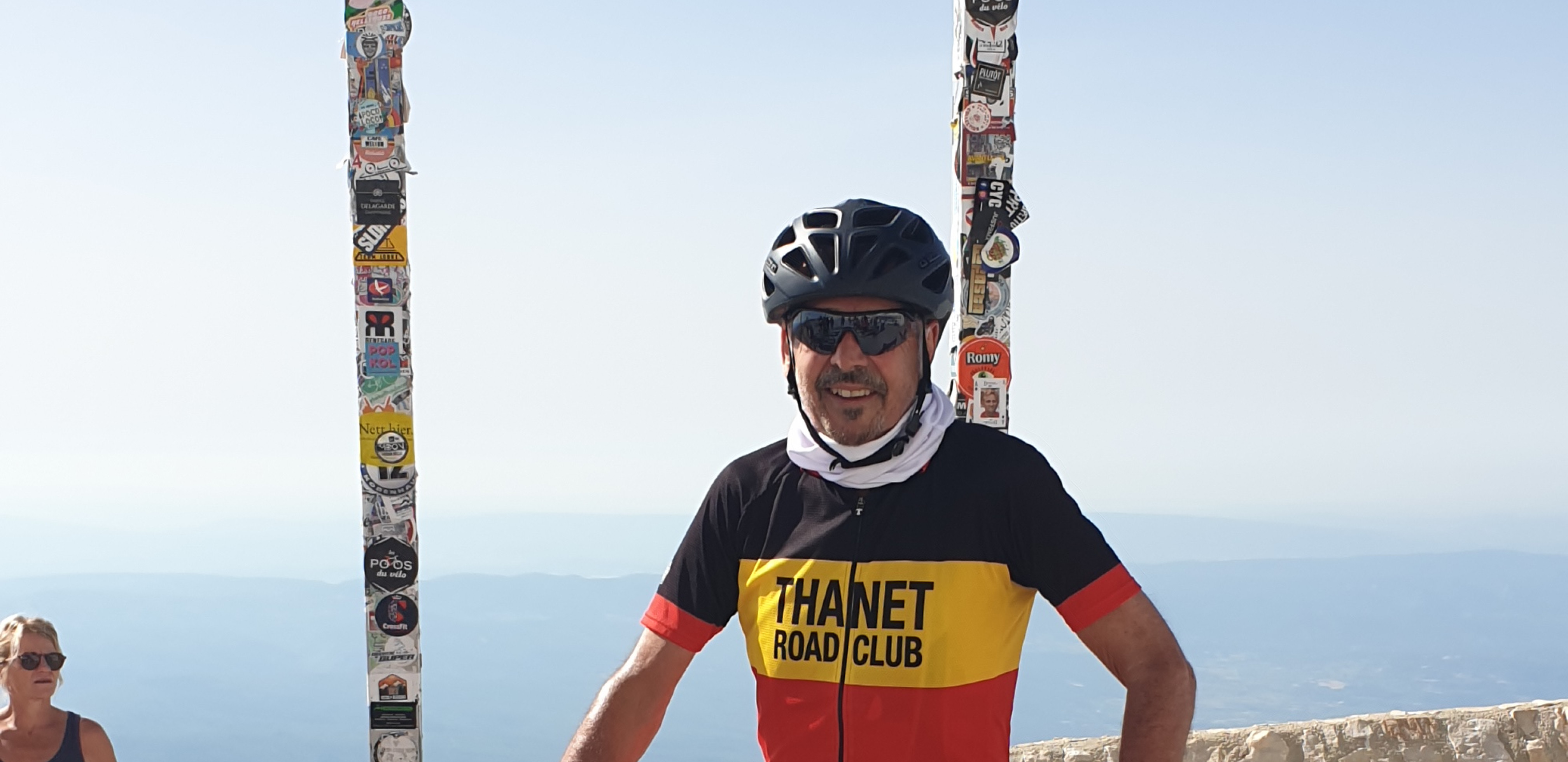
Phil’s cancer rollercoaster takes him to the top of a mountain
A dad who was determined to continue cycling despite being diagnosed with cancer conquered a Tour de France mountain to mark the anniversary of finishing treatment.
Phil Votta, 68, regularly completed 50-mile rides in the mornings before heading for radiotherapy treatment for mouth cancer in the afternoons, and finished a 100-mile sponsored ride six months after treatment.
The retired head of science, from Broadstairs, is a member of Thanet Road Club and believes his hobby helped him recover after he was diagnosed with cancer in 2022. He is sharing his story as part of Mouth Cancer Action Month this month (November).
He said: “I was determined not to give up and continuing to cycle was part of that. I think being relatively fit helped with the surgery too.
“I tried to stay mentally positive and not waste energy on things that didn’t contribute to my recovery, such as wondering ‘why me?’
“I think that was easier for me than others because I am retired and my children are adults, and I had fantastic support from my wife Lynn all the way through.”
Phil initially noticed an ulcer on his tongue that didn’t heal despite trying over-the-counter treatments. His GP was concerned and referred him to the Kent and Canterbury Hospital, where a biopsy revealed it was cancer.
He said: “I’d read Danny Baker’s autobiography where he talks about having head and neck cancer so I was aware of it as a condition.
“Initially I wasn’t worried and I left it because I thought it would heal.
“But after the biopsy, I then received a call asking me to pop in for the results, I couldn’t think of anything else it could possibly have been.
“When I went into the room and saw the Macmillan nurse sitting there too it was pretty clear what I was going to be told. It wasn’t unexpected but you still feel dismay and confusion and everything is a shock and a blur.”
Phil had surgery to remove part of his tongue and some of his lymph nodes, and tissue and blood vessels from his left arm were used to repair his tongue. The operation took 13 hours, and took place three weeks after his diagnosis. He spent 10 days in the William Harvey Hospital, including three days in critical care.
Afterwards he had to relearn how to swallow, and then faced six weeks of radiotherapy, five days a week. His teeth on the left side of his mouth had to be removed before the radiotherapy, and he was fitted for a special mask to hold his head in place during the treatment.
Phil said: “I couldn’t even open my eyes with the mask on, it had to be that tight so they could target the treatment accurately.
“As it continued, my mouth became ulcerated and sore and I lost my sense of taste.
“But the sessions were very well-run, and the teams throughout my experience were incredible. They took as much care of my wife Lynn as they did of me.
“Despite that, it can feel like everything is happening to you, rather than with you. I didn’t actively make any of the choices; there just wasn’t really another option.
“It feels like you are on a giant rollercoaster called cancer – you didn’t want to get on, and you can’t get off, and it has unexpected twists and turns and can feel like the scariest ride you have ever experienced.”
Phil had always wanted to cycle up Mt Ventoux in Provence, which is a regular feature of the Tour de France, and set off a year after finishing treatment. The 13-mile route climbs 5,300ft.
He said: “The consent forms you have to sign list all the complications, and some of them can be terrifying, such as losing movement in your hand and shoulder, so I was worried I wouldn’t be able to get back on the bike.
“But I was lucky and was pleased to show my consultant the photo of me smiling proudly at the top.
“There are after-effects, including the worry if it will come back, but everyone has that and I have regular check-ups to keep an eye on things.
“We also have wonderful support from our Macmillan nurses who are on hand if we have any questions.
“I now attend the support group for head and neck cancer patients and while it can be painful reliving things at first, it is good to be able to help others and share my experiences.”